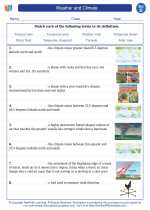Weather and Climate -> volcanic eruptions
Volcanic Eruptions
Volcanic eruptions are natural events that occur when magma, gases, and other volcanic materials are expelled from a volcano. These eruptions can range from relatively gentle lava flows to explosive eruptions that release large amounts of ash, gas, and rock fragments into the atmosphere.
Causes of Volcanic Eruptions
Volcanic eruptions are caused by the movement of tectonic plates and the presence of magma beneath the Earth's surface. When the pressure of the magma becomes too great, it can cause an eruption. The type of eruption depends on the composition of the magma and the type of volcano.
Types of Volcanic Eruptions
There are several types of volcanic eruptions, including:
- Effusive Eruptions: These eruptions involve the relatively gentle release of lava from a volcano. The lava flows slowly and can create new land as it cools and solidifies.
- Explosive Eruptions: These eruptions involve the rapid release of gas, ash, and rock fragments. They can be extremely dangerous and cause widespread destruction.
- Phreatic Eruptions: These eruptions occur when magma comes into contact with water, creating steam and causing an explosion.
Effects of Volcanic Eruptions
Volcanic eruptions can have a wide range of effects, including:
- Lava Flows: Lava flows can destroy buildings and infrastructure, but they can also create new landforms and fertile soil.
- Ashfall: Ash from volcanic eruptions can travel long distances and disrupt air travel, as well as causing respiratory problems and damaging crops.
- Pyroclastic Flows: These fast-moving flows of ash, rock, and gas can be extremely destructive and deadly.
- Climate Effects: Large volcanic eruptions can release enough ash and gas to temporarily cool the Earth's climate.
Studying Volcanic Eruptions
Scientists study volcanic eruptions to better understand their causes and effects, as well as to monitor and predict future eruptions. This involves a variety of techniques, including monitoring seismic activity, gas emissions, and changes in the shape of the volcano.
Understanding volcanic eruptions is important for the safety and well-being of people living near active volcanoes, as well as for understanding the Earth's geological processes.
.◂Science Worksheets and Study Guides Fourth Grade. Weather and Climate
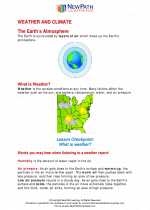
 Activity Lesson
Activity Lesson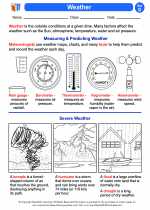
 Worksheet/Answer key
Worksheet/Answer key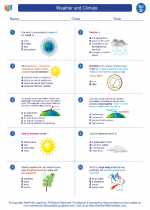
 Worksheet/Answer key
Worksheet/Answer key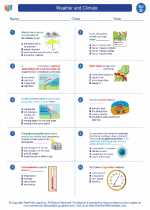
 Worksheet/Answer key
Worksheet/Answer key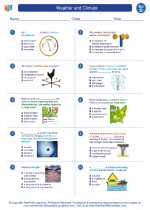
 Worksheet/Answer key
Worksheet/Answer key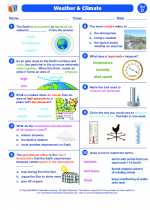
 Vocabulary/Answer key
Vocabulary/Answer key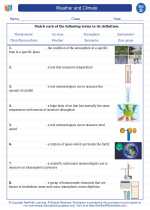
 Vocabulary/Answer key
Vocabulary/Answer key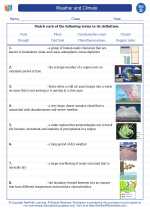
 Vocabulary/Answer key
Vocabulary/Answer key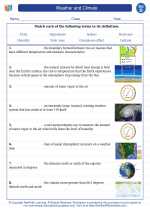
 Vocabulary/Answer key
Vocabulary/Answer key